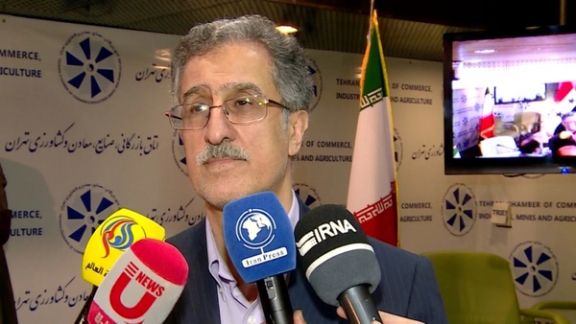Entangled In Financial Crisis Iran Unable To Finalize New Budget

Iran’s economic situation is already alarming with its currency at historic lows and high inflation, but reports suggest next fiscal year will be even more cataclysmic.

Iran’s economic situation is already alarming with its currency at historic lows and high inflation, but reports suggest next fiscal year will be even more cataclysmic.
While the US dollar was trading for over 410,000 rial threshold on Thursday, President Ebrahim Raisi’s administration has not finalized the country's budget for the next Iranian year starting March 21, and the fate of the country’s Seventh Five-year National Development Plan (2022-2026) is still in limbo.
Following weeks of buck passing between the administration and the parliament, in which lawmakers insisted that without a final new five-year plan the budget cannot be considered, the government is still dragging its feet. Some hardliner supporters of President Ebrahim Raisi argued Tuesday that both plans may be discussed simultaneously at the parliament, but Speaker Mohammad Bagher Ghalibaf opposes any change of procedures.
The law says that when a five-year plan comes to an end, the government should submit a new one, based on which the legislature can debate a new budget. But amid lack of economic and financial clarity due to sanctions and international isolation, the government has not finalized the next five-year plan, while the deadline to submit a budget passed in December 6.
Since 1989, the Islamic Republic has been devising five-year development plans. A lot of organizations and institutions are involved in designing and actualizing these plans, which mostly remain on paper, because they are full of general statements without planning for the needed monetary resources.
According to parliament rules, if the administration misses the December 6 budget deadline, it must attach an addendum to the budget bill that will earmark spending for quarterly portions of the year. This means demanding extra work from an administration that has already failed to perform its ordinary procedural duty. Quarterly allocations mean parliament will approve only three-month budgets, which will tremendously complicate operations not just for government departments, but all the businesses owned or controlled by the state, which constitute up to 80 percent of the economy.
Considering the steep fall of the rial and growing sanctions pressure, the administration cannot have a reasonable estimate of the dollar exchange rate and the amount of revenues from oil exports for the coming year to be able to finalize the details of the budget. On the other hand, the government is selling oil under the market price to small Chinese refineries and through illegal ship-to-ship transfers to circumvent sanctions. Now that Russia is also competing with Iran in sales to China, the government is not certain how much crude Tehran would be able to sell and at what price.
In July, the Supreme Accounting Office released a report covering the period March 21- May 20 showing that except tax revenues, all other major sources of income grossly underperformed, which local media said was a serious warning for the government and the economy. The government’s revenues from taxes, oil exports, customs duties, etc. totaled 880 trillion rials or about $3.5 billion (average free market exchange rate at the time) in the 60-day period. This was just 37 percent of the projected budget revenues. It is important to note that only 15 percent of the projected oil income was collected.

All this chaos is happening on the backdrop of over 115 days of antigovernment protests, that have accelerated capital flight. Confirming the massive outflow of capital from the country, head of Tehran Chamber of Commerce, Industries, Mines and Agriculture, Masoud Khansari, said earlier in the month that the annual outflow of capital has reached about $10 billion.
Opponents of the Islamic Republic have also urged people to withdraw their deposits from government banks to put further pressure on the government, which has been printing more money in recent years. The money supply has grown at an unprecedented pace since September.
Banks have raised interest rates to attract deposits. In the past few days the Central Bank has given the go-ahead for up to 20-percent interest rates for banks to pay. Although the Central Bank says any rate more than 20 is a violation of the law and can lead to the firing of a bank manager, a many banks – especially semi-private institutions are giving 23 to 25 percent interest under the table.
Talks to revive the JCPOA and lift most of the US sanctions have stalled since September when the last attempt by the European Union to broker a deal fell apart.